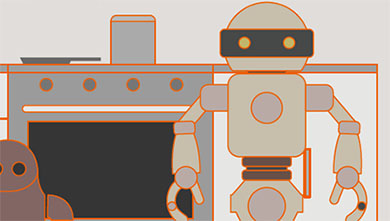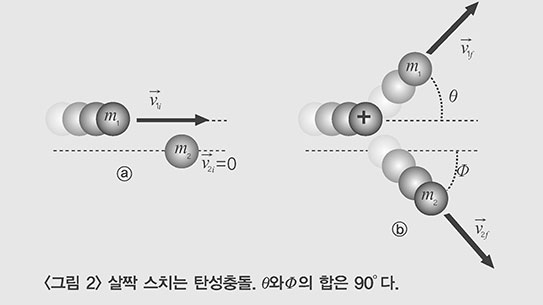'쓰레기'(영어로 가베지)라는 단어는 베어낸 곡물의 묶음이라는 의미를 가진 오래된 프랑스어 단어인 '가브'에서 유래됐을지도 모른다. 어떤 사람들은 찌꺼기를 제거한다는 '가베라게'에서 유래된 것이라고 생각한다. 1942년도의 영어사전은 쓰레기를 '동물이나 집안에서 나오는 폐기물' 혹은 '값어치 없고 천한 물건들'이라고 정의했다. 옥스포드 영어사전은 '쓸모없고 지저분한 잡동사니'를 추가했고 최신판에서는 컴퓨터로 입력 혹은 출력한 '이해할 수 없는 자료'를 포함하고 있다. 더 최근 출간된 사전에선 쓰레기를 현재 지구를 중심으로 기능을 상실한 채 맴돌고 있는 인간이 만들어 쓴 다양한 물체라는 풀이를 덧붙이고 있다.
쓰레기의 뜻이 과거 무엇이었고 또한 현재 무엇이건 간에 우린 많고 많은 쓰레기를 갖고 있다. '쓰레기'는 어느 백과사전에선 '고체 폐기물'아래 등록되어 있고 미국에서만도 연 3억6천만t이 배출되는 것으로 설명되고 있다. 사람 한명이 평균 하루에 버리는 11㎏(5파운드)의 쓰레기를 처분하느라 수십억달러가 소모되고 있다. 거기다가 엄청나게 쌓이는 무기들을 제거하는 문제도 있는데 필자는 그러한 쓰레기가 지구를 더럽히기만 하는 쓸모없는 쓰레기라는 생각을 갖고 있다.
쓰레기를 폐기처분하는 작업은 그동안 줄곧 비효율적이었다. 인류의 문명이 시작되면서 쓰레기장은 병을 옮기는 동물과 곤충들, 특히 쥐와 페스트 전염병을 감염시키는 벼룩을 번식시키는 장소가 되었다. 옛날의 사냥꾼들이나 먹이 채집꾼들은 문제가 없었던 것이 숫자도 적었고 또한 그들은 대부분 미생물로 분해될 수 있는 쓰레기를 남김으로써 지구의 생태계로 재생할 수 있도록 했다. 여기서 중요한 말은 '생분해할 수 있다'는 말이다. 산업사회가 생산해내는 쓰레기는 대부분 생분해가 전혀 불가능하다. 이 문제를 풀기 위한 노력이 진행중이지만 그러나 쓰레기장의 플라스틱과 쇳덩어리를 먹어치우는 세균이 있다면 쓰레기문제가 거기서 해결될까? 아니면 철과 플라스틱으로 이룩한 우리 도시들이 그 세균 때문에 허물어지게 될까?
쓰레기를 땅속에 묻으면 쌓아놓는 것보다 눈에 잘 띄지도 않고 병균문제도 적어지지만 쓰레기의 과잉문제는 지구상의 면적을 줄게 만든다. 사막이나 얼음판이나 바다나 산꼭대기 등 사람이 살지않는 곳에 쓰레기를 버린다고해도 해결책이 찾아지는 것은 아니다. 매우 소중한 생태계의 파괴를 언급하지 않더라도 지구상의 모든 것은 서로 연결되어 있어서 한군데가 썩으면 다른 쪽이 불결해진다.
따라서 지금도 쓰레기 매립장은 점점 넓어지고 있다. 세계에서 가장 큰 매립장중의 하나는 뉴욕 스테턴섬의 프레시 킬스매립장이다. '킬스'라는 단어는 영어에선 죽음과 관련되어 있지만 이 경우는 수도를 뜻하는 네덜란드 말에서 유래된 점이 흥미롭다. 우리가 베자라노 다리 옆에 또하나의 에베레스트산이 나타날 것을 정말 바라지 않는다면 언젠가 쓰레기 운반선들이 스테턴섬에서 방향을 되돌리게 될 것이다. 쓰레기 매립장은 문제가 많다. 이곳의 쓰레기가 하루 밤사이에 좋은 흙으로 분해되지는 않는다. 많은 플라스틱과 쇠붙이들은 거의 영구적으로 남고 심지어는 종이도 분해되려면 60년이 소요된다(현대에 출간된 책들은 노랗게 변하고 수주 후면 가루가 되기도 하지만). 또한 쓰레기를 태워서 그렇지 않아도 위험수위에 육박한 공해 심한 대기에 문제를 가중시키는 것도 걱정스러운데 각 지역마다 1억달러가 드는 쓰레기 소각장을 건립하여 하루에 3천t에 달하는 유독성 재를 공중으로 날려보내고 있다.
만약 쓰레기를 버리고 매립하고 소각시키는 것이 위험하다면 다른 무엇이 좋을까?
보다 나은 상품의 제조가 중요하다. 바텔레회사는 '바이오셀라트'라는 플라스틱을 개발해서 사람들이 공동묘지 주변에 버려왔던 장례식 촛대가 미생물에 의해 분해될 수 있도록 했다. 냉장제품의 냉각제는 오존층을 파괴하므로 소닉 콤프레서시스템사는 가스를 압축시키는데 음향주파를 공진시키는 방법으로 작동하는 냉장고의 개발을 시도하고 있다. 그렇게만 된다면 흔히 사용되어 피해를 주었던 피스톤이나 윤활유가 사라지기 때문에 위험하지 않은 냉각제가 활용될 수 있다. 또한 이러한 냉장고는 가동시키는 비용이 더 값싸기도 하다.
쓰레기를 재생이용하는 방법도 더욱 강구되어야 하는데 조심스럽게 접근해야 하는 것이 최근 어떤 화학회사들이 유독성 철강을 비료와 섞어 판매하며 소각시키는 계략을 꾸몄다고 고소당하기도 했기 때문이다.
쓰레기 수출도 어려운데 쓰레기운송용 선박들은 짐을 허가하는 항구를 찾을 수가 없는 형편이다. 아이작 아시모프는 언젠가 지구인들을 경멸하는 외계인들이 자신들의 쓰레기를 다른 위성이 아닌 지구에 가져와 버리는 이야기를 글로 쓴 적도 있다. 달 뒤쪽엔 거대한 땅이 있는데….
이제 생각하니 이미 존재하는 우주 쓰레기 문제가 떠오른다. 미국 항공우주국은 계획된 우주정거장의 건설에 궤도에 남아 무려 3만개 가량의 조그마한 것들이 총알처럼 정거장의 벽과 우주를 유영하는 우주인들의 우주복을 뚫을 수 있는 폐기물을 만났을 때의 대비책으로 두꺼운 방패막이를 구상하고 있다. 우주선의 유리창에 단하나의 페인트자국이라도 심하게 패인다면 그것은 교체되어야 한다. 무력증강이라는 바보스러운 목표로 인해 많은 스파이용 위성과 로켓이 실수로 혹은 의도적으로 우주에 쏘아 올려져 궤도중에 그 조각찌꺼기들을 남기고 있다.
우주선이 우주의 쓰레기들과 충돌할 30분의 1이라는 확률은 의문의 여지가 없이 높아지고 있다. 존슨우주센터의 한 엔지니어는 멤도는 파편들을 쓸어없앨 수 있는 우주빗자루 같은 것의 특허를 냈으며 이 청소가 조심스럽게 이루어져 유용한 것들을 궤도상에 남을 수 있도록 하는 작업이 진행중이다.
우리가 우리주변과 머리 위에 쓰레기가 쌓임을 걱정하는 동안 아름다운 동굴의 벽화나 흥미롭게 서 있는 돌을 발견하는 그 이상의 과학인 고고학을 상기시켜 보라. 고고학의 많은 부분은 오래 묵은 쓰레기를 뒤지는 것이고 필자가 아는 모든 고고학자들은 이 쓰레기 찾는 작업을 즐긴다. 그들은 여러 트로이의 쓰레기를 탐색하고 그중 어떤 것이 호머의 것인가를 찾는다. 현재 그들은 지난 17세기와 18세기에 흑인 노예들의 실제생활 환경과 창조적 노력의 면모를 탐색하고 있다.
언젠가 다른 곳에서 방문한 고고학자들이 지구의 인공물들은 검토하고 환희의 기쁨속에서 웃어댈는지도 모른다. 그땐 우린 스스로를 절멸시켜 쓰레기로 만들어버린 후일까?
The word "garbage" may derive from the old French "garbe" for sheaf. Some people think it's from "garbelage" - removal of refuse. A 1942 dictionary dismisses garbage as "animal or household refuse," or "low or vile things collectively." The Oxford English Dictionary adds "worthless or foul literary matter" and a brand-new dictionary includes "incomprehensible data" put into or produced by a computer. A newer dictionary includes as garbage the various non-functioning man-made hardware currently orbiting Earth.
Whatever garbage was or is, we have plenty of it "Garbage" is listed under "Solid Waste" in an encyclopedia, with 360 million tons produced annually in the United States alone. Billions are spent in disposing of the 11 kilograms(5 pounds) each human discards each day. Then there's the disposal problem of the huge stockpiles of weapons, which I think of as useless garbage littering the planet.
Disposal practices have always been inefficient With the onset of civilization, garbage dumps provided breeding grounds for disease-carrying animals and insects, especially rats and their plague-carrying fleas. Earlier hunter-gatherers were better off, since there weren't so many of them and they left their largely biodegradable garbage behind, to be recycled into the planet's ecology. The key word is "biodegradable." The garbage produced by industrial societies is generally not at all biodegradable. Work is being done on this problem, but if you engineer a microbe to eat up the plastic and metal in garbage dumps, would it stop there? Would our metal and plastic cities crumble?
Landfills are less unsightly and disease-ridden than open dumps, but overpopulation ensures that space on the planet is running out Dumping garbage where people don't live—deserts, ice fields, ocean, mountaintops—isn't the answer, either. On planet Earth everything is connected, so fouling up here louses up there — to say nothing of destroying potentially valuable ecology.
In the meantime, landfills get larger. One of the world's biggest is the Fresh Kills landfill on New York's Staten Island. It's ironic that "Kills" means death-dealing in English but in this case comes from the Dutch word for channel. Some day the city barges will be turned away from Staten Island, unless we really want another Mount Everest looming beside the Verrazano narrows.
Landfills are problematical. They aren't decomposing into nice soil overnight. Many plastics and metals stay put almost forever, and even paper can take 60 years to degrade(unless it's in a modern book, which seems to turn yellow and friable in a few weeks). It's stupid to burn the stuff and add to the already dangerous air pollution, but local plans are afoot to build garbage incinerators costing $100 million each that may send out 3,000 tons of toxic ash per day.
If dumping and filling have their limits, and incineration is dangerous, then what's left? Better manufacturing is important. Battelle has developed a plastic material called "Biocellat" to make biodegradable memorial candleholders that humans scatter around cemeteries. Refrigeration coolants destroy the ozone layer so the Sonic Compressor Systems company hopes to make refrigerators that work by resonating acoustic waves to compress gas. Non-dangerous coolants can then be used because there won't be conventional pistons and lubricants that they would damage. These refrigerators will also be cheaper to run.
Recycling garbage should be worked on more, but with care—some chemical companies were recently indicted on charges that they schemed to dispose of toxic heavy metals by mixing them with fertilizer for sale.
Exporting garbage is difficult, as in the case of the garbage scow that couldn't find a port to accept its load. Isaac once wrote a short story about the scorn aliens had for Terrans who disposed of their garbage on Earth instead of sending it off the planet. The back side of the moon is a big place….
Which brings me to the problem of garbage we already have in space. NASA is considering heavy shielding of its proposed space station as protection from encounters with junk left in orbit— 30,000 pieces of it small enough to act like bullets able to penetrate station walls and the spacesuits of astronauts taking space walks. Even one fleck of paint pitted a shuttle's windshield so badly it had to be replaced. In the foolishness of the arms race, many spy satellites and rockets were accidentally or deliberately exploded in space, leaving fragments in orbit
The one-in-30 chance of the space shuttle colliding with space junk has no doubt gotten worse. An engineer at Johnson Space Center has patented a sort of space broom to sweep up orbiting debris, and the work is on to make it do this selectively, so useful things will remain in orbit.
While we worry about the garbage piling up around us and over us, let's remember archeology, a science which involves more than finding beautiful cave paintings or interesting standing stones. Much of archeology is rummaging through ancient garbage, and all the archeologists I know love it. They search through the garbage of many Troys to find which one was Homer's. Right now they're exploring the actual living conditions and creative efforts of black slaves in the 17th and 18th centuries.
Someday archeologists visiting from ELSEWHERE may chortle with glee at all the artifacts to examine on planet Earth. Will we have garbaged ourselves into extinction by then?
이 기사의 내용이 궁금하신가요?
기사 전문을 보시려면500(500원)이 필요합니다.
1992년 09월 과학동아 정보
🎓️ 진로 추천
- 환경학·환경공학
- 지구과학
- 역사·고고학
1992년 09월 과학동아 다른추천기사











